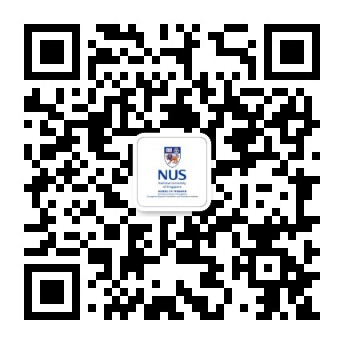On September 12, 2024, the "International Innovation Management and Technology Transfer - Practices of the National University of Singapore" Huangpu Science and Technology Innovation Forum was successfully held at the NUS Guangzhou Research Translation and Innovation Institute (NUS GRTII). This event was jointly organized with the NUS Technology Transfer and Innovation Department (TTI), facilitating in-depth exchanges on hot topics such as innovative technology, technology transfer, and intellectual property management, thereby promoting the deep integration of intellectual property and scientific and technological innovation.
Over the past five years, the NUS Technology Transfer and Innovation Department (TTI) has efficiently facilitated the transformation of over 500 technological achievements. Its model for the conversion of scientific and technological achievements and rich practical experience have provided valuable references for universities and research institutions at home and abroad.
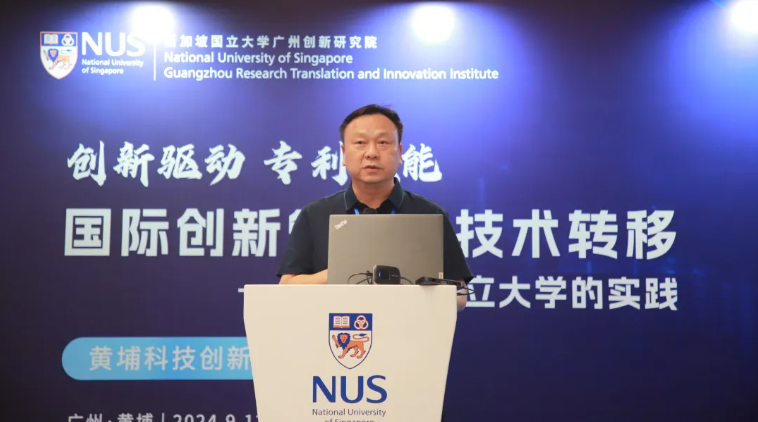
At the forum, Mr. Yi Zhao Hui, a senior researcher at the Guangzhou Municipal Market Supervision and Administration Bureau (Intellectual Property Office), emphasized in his speech that Guangzhou has always attached great importance to intellectual property work and actively promoted international cooperation in scientific and technological innovation and intellectual property. This forum not only built an important bridge for exchange and cooperation between Guangzhou and Singapore in the field of intellectual property but also played a positive role in stimulating innovative vitality and promoting sustainable development. He looked forward to all sectors of society working together to contribute to the prosperity and development of the intellectual property cause.
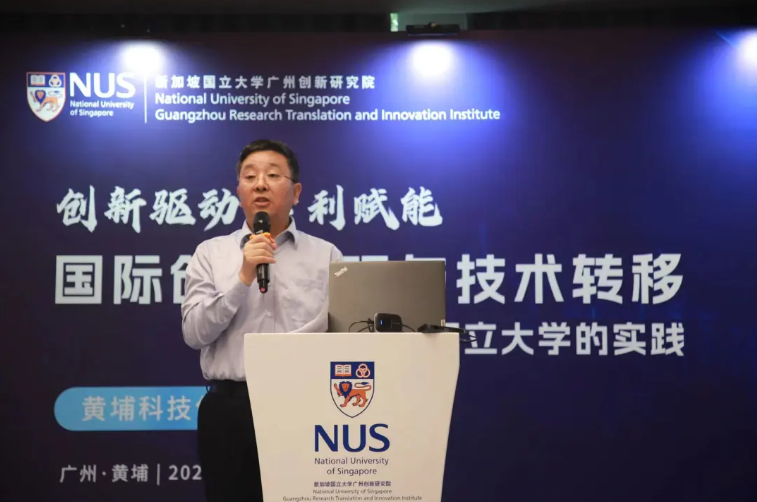
Following this, Professor Meng Qiang, a member of the Singapore Academy of Engineering and Director of NUS Guangzhou Research Translation and Innovation Institute, congratulated the successful convening of the forum, and expressed gratitude to the attending guests, on behalf of the institute.
Professor Meng pointed out that NUS is committed to promoting the deep integration of intellectual property and scientific and technological innovation in the Guangdong-Hong Kong-Macao Greater Bay Area. By sharing the successful experience of the NUS Technology Transfer and Innovation department, the forum explored strategies to facilitate the effective transformation of scientific and technological achievements. The aim is to provide new perspectives and solutions for Guangzhou and Huangpu District in integrating international scientific and technological innovation with intellectual property. NUS GRTII will continue to leverage its strength as an international and innovative organization, and collaborate with excellent partners with an open and inclusive approach. This would ignite more sparks of innovation in Huangpu, thereby jointly pushing the work of technology transfer, and scientific and technological innovation to new heights.
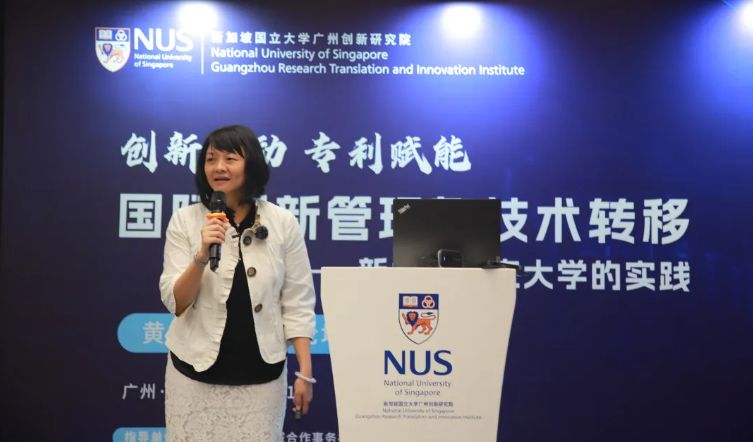
During the keynote speech session, Dr. Koh Shuwen, Director of the NUS Technology Transfer and Innovation Department, delivered a thematic presentation titled "From Laboratory to Market - The Market Journey of PAXMAN Medical Technology". She conducted an in-depth analysis of NUS's strategies for cultivating entrepreneurial and innovative talents, elaborated on the core driving force behind innovation growth, and shared practical experiences in effectively promoting enterprise creation.
Dr. Koh also introduced the key elements of building an innovation and entrepreneurship platform and shared the market expansion case of PAXMAN, demonstrating the practical application and cutting-edge concepts of innovation achievement transformation within the industry.
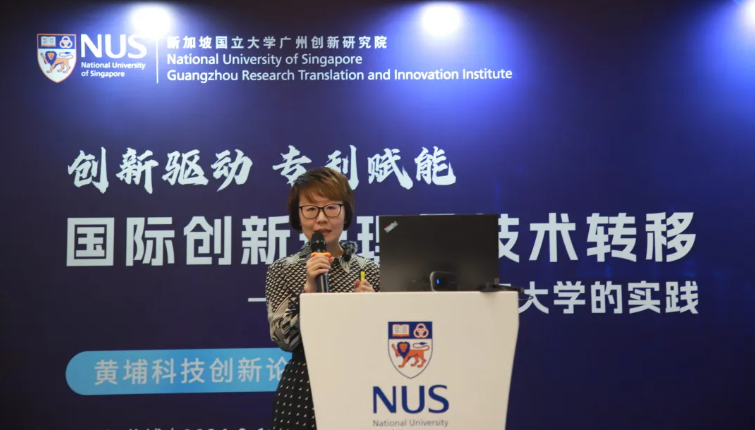
Subsequently, Ms. Zhao Na, Deputy Director of the NUS Technology Transfer and Innovation Department, delivered a thematic presentation titled "From Theory to Practice - Practical Sharing of University Technology Transfer and Intellectual Property Management". She interpreted the management and commercialization strategies of intellectual property in a profound yet accessible manner, introducing the critical role of research collaboration between universities and enterprises in driving technological innovation and industrial upgrading under the backdrop of the global economy.
Ms. Zhao shared the pros and cons of various software licensing models and provided an in-depth analysis combined with actual cases. She emphasized that when choosing a software licensing strategy, one should flexibly adjust the strategy based on the specific circumstances of the project and changes in market demand, ensuring that technological achievements can be fully utilized.
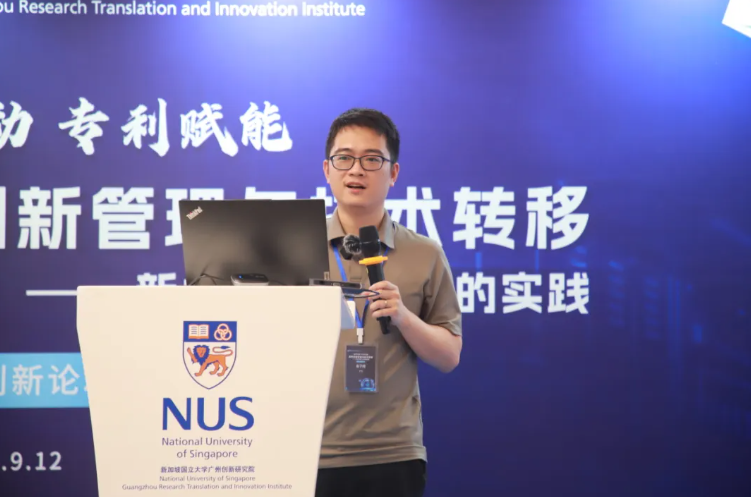
Mr. Yuan Ziying, Senior Manager of the NUS Technology Transfer and Innovation Department, gave a speech on the theme of "From Academia to Industry - The Commercialization Path of NUS Computer Technology and AI Innovation Practices". He delved into the challenges and opportunities of transforming NUS computer technology into industry applications, detailing the management strategies of various intellectual properties in the field of university information technology, such as patents, copyrights, and open-source software. He pointed out that in the rapidly developing era of information technology, the efficient management and reasonable utilization of these intellectual property resources are invaluable for promoting the commercialization of university research achievements.
Meanwhile, Mr. Yuan introduced in detail the cutting-edge technological achievements of NUS computer-related laboratories, showcasing their innovative applications and cases in promoting the integration of academia and industry, as well as the feasible paths for the commercialization of AI technology.
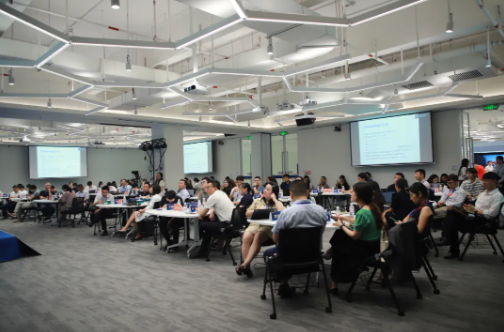
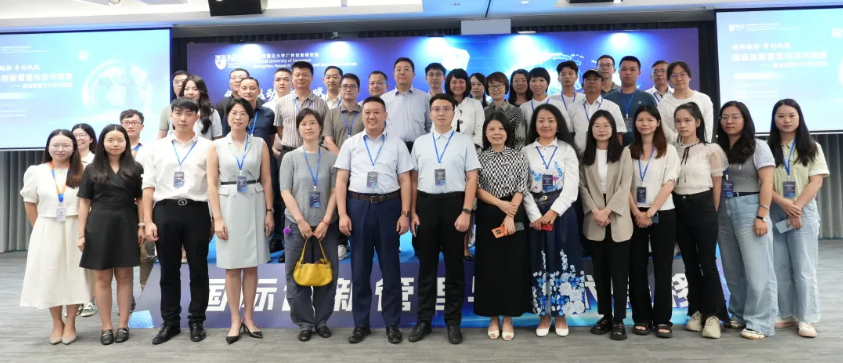
In the future, NUS GRTII will continue to play the role of a collaborative platform, building an innovative ecosystem that closely integrates industry, academia, research, and application. By promoting the effective transformation and industrial application of scientific and technological achievements, it will contribute to the innovation and high-quality development of the Greater Bay Area.


